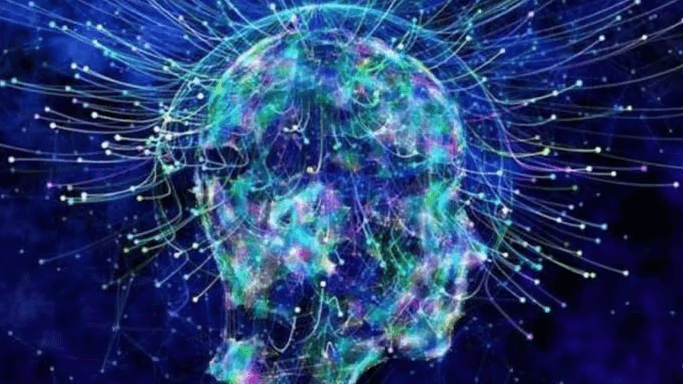Prepare to have your mind blown as we delve into the controversial theory of biocentrism. This intriguing concept suggests that life, particularly human consciousness, is at the very center of the universe. But hold on tight, because we’re about to challenge these bold claims and expose a whole new perspective.
In this eye-opening blog post, we’ll dismantle the notion that our existence holds cosmic significance. Brace yourselves for an intellectual rollercoaster ride as we explore why biocentrism falls flat in explaining the mysteries of our vast universe. So buckle up, skeptics and seekers of truth alike – it’s time to separate fact from fiction!
Read also Asan N’jie on his Wiki Page
What is biocentrism?
Biocentrism, a captivating theory proposed by scientist Robert Lanza, suggests that life and consciousness are fundamental to the existence of the universe. According to biocentrism, our very perception of reality creates it – essentially flipping the conventional understanding of cause and effect on its head.
In this intriguing worldview, human consciousness becomes not just an observer but a creator of reality itself. The idea is that without conscious observers, the universe would simply cease to exist. It implies that everything we perceive – from distant galaxies to subatomic particles – only exists because we are here to witness it.
Proponents argue that biocentrism provides an elegant explanation for phenomena such as quantum mechanics and the fine-tuning of universal constants. They believe it offers a unifying framework where science and spirituality can coexist harmoniously.
However, while biocentrism may appear enticing at first glance, there are several glaring holes in this hypothesis. Let’s explore some key points that challenge its validity and reveal why skepticism is warranted when examining this controversial concept.
The Universe is Not Conscious
The concept of biocentrism posits that consciousness is a fundamental aspect of the universe. However, upon closer examination, it becomes clear that this idea lacks substantial evidence and falls short in explaining the true nature of our surroundings.
Many proponents of biocentrism argue that the universe itself possesses consciousness. They suggest that everything from stars to galaxies has some level of awareness. However, this notion seems more like wishful thinking than a scientifically grounded hypothesis.
In reality, there is no concrete evidence to support the claim that the universe possesses consciousness. Our current understanding of physics and cosmology paints a different picture – one where conscious awareness arises as a result of complex biological processes within certain organisms.
Consciousness is intricately tied to brain function and neural activity. It emerges through intricate networks and interactions between billions of neurons firing in precise patterns. This phenomenon can be observed in various degrees across different species but cannot be attributed to an entire cosmic entity like the universe itself.
Moreover, if we were to consider for a moment that the entire universe does possess consciousness, it raises more questions than answers. What would be its purpose? How does it function? And why do we only observe conscious experiences within living beings?
Until there is tangible evidence supporting biocentrism’s claims about universal consciousness, it remains nothing more than speculative conjecture without scientific grounding or explanatory power. The pursuit of knowledge should always rely on rigorous observation and testable predictions rather than unfounded beliefs or wishful thinking.
Read also Kona Alvarado’s Mysterious Death
Consciousness is not Required for the Existence of the Universe
Consciousness is often thought to be a defining characteristic of life and existence. It is the awareness and experience that we attribute to ourselves and other living beings. But does consciousness really play a role in the existence of the universe?
From a scientific standpoint, there is no evidence to support this idea. Consciousness, as we understand it, arises from complex neural networks in biological organisms. It is not an inherent property of matter or energy itself.
The laws of physics govern the behavior of particles and fields in our universe, regardless of whether there are conscious beings observing them or not. Gravity still pulls objects together, atoms still bond to form molecules, light still travels at a constant speed through space.
If consciousness were necessary for the existence of the universe, then what about all those billions of years before life even emerged on Earth? Did the universe just sit idle until sentient creatures came along?
Moreover, if consciousness was indeed essential for existence, how do we explain phenomena like black holes or distant galaxies that exist far beyond our reach? These cosmic entities continue to interact with each other despite lacking any form of consciousness.
It’s important to separate our human-centric perspective from objective reality when discussing such philosophical concepts. While consciousness may be crucial for our subjective experience within the world, it does not dictate or determine the fundamental workings of the universe at large.
The notion that consciousness is required for the existence of the universe lacks empirical evidence and contradicts scientific understanding. The laws governing nature operate independently of conscious observers and have been functioning long before biological life emerged on Earth. Consciousness may be remarkable and unique within living organisms but cannot claim centrality in explaining universal existence
Biological Life is Not the Center of the Universe
When contemplating our place in the grand scheme of things, it’s natural to wonder if biological life holds a special position in the universe. However, upon closer examination, it becomes clear that this assumption may be nothing more than wishful thinking.
The vast expanse of the cosmos extends far beyond what our human minds can comprehend. Countless galaxies and celestial bodies exist, each with their own unique characteristics and compositions. It seems unlikely that amidst such an immense tapestry of existence, biological life on Earth would hold any kind of central role.
Furthermore, when we consider the incredible diversity found within our own planet alone—ranging from microscopic organisms to majestic creatures—we begin to realize that even within our limited understanding, there are countless forms of life that thrive without being dependent on us or revolving around us.
In fact, scientists have discovered extremophiles thriving in some of Earth’s most inhospitable environments—places once thought incapable of supporting life. This suggests that life can adapt and flourish under conditions previously deemed impossible.
So why do some cling to the idea that biological life must be at the center? Perhaps it stems from a desire for significance or reassurance about our place in an unfathomably vast universe. But as humbling as it may be, evidence points against this notion.
Accepting that biological life is not at the center does not diminish its value or beauty. Instead, it invites us to appreciate all forms of existence and recognize how interconnected everything truly is—a reminder to cherish every moment we have on this remarkable planet we call home.
Read also AK Lasbela
Lack of Testable Predictions
When it comes to scientific theories, one of the most important factors is the ability to make testable predictions. This allows us to gather data and evidence in order to confirm or refute a theory. However, when it comes to biocentrism, there seems to be a lack of concrete and testable predictions.
Biocentrism suggests that consciousness creates the universe, but how can we put this idea to the test? How can we design experiments or observations that would provide evidence for or against this theory? The truth is, we can’t. Biocentrism relies heavily on philosophical arguments rather than empirical evidence.
Without testable predictions, biocentrism remains purely speculative and unfalsifiable. It becomes difficult for scientists to engage with this theory in a meaningful way because there are no clear guidelines on how to explore its claims through experimentation or observation.
In contrast, other scientific theories like quantum mechanics or general relativity have been successful precisely because they make precise and testable predictions. These theories have stood up against rigorous testing over time and have provided us with valuable insights into the workings of our universe.
While biocentrism may offer an intriguing perspective on consciousness and reality, its lack of testability limits its validity as a scientific theory. Without concrete predictions that can be verified through empirical methods, it becomes challenging for scientists to fully embrace and explore this concept within the bounds of conventional science.
So while biocentrism may spark curiosity and inspire philosophical debates about our place in the universe, it falls short when it comes to meeting the criteria necessary for acceptance as a scientifically sound theory. Without tangible evidence derived from experimental testing, it remains an interesting speculation rather than an established fact about our existence.
Conclusion
After examining the claims and arguments of biocentrism, it becomes clear that this theory is not supported by scientific evidence and lacks credibility. The idea that the universe is conscious or that consciousness is required for its existence goes against our current understanding of physics and cosmology.
While it’s true that life on Earth is remarkable and holds great significance to us as humans, there is no reason to believe that biological life occupies a central position in the universe. We must acknowledge our place as one small part of a vast cosmos, without any inherent special status.
Furthermore, biocentrism falls short when it comes to making testable predictions. Scientific theories are built upon observations, experimentation, and reproducibility. Without these essential components, biocentrism cannot be considered a valid scientific theory.
In conclusion (without using those exact words), it’s important to approach theories like biocentrism with critical thinking and an open mind while also considering the well-established principles and evidence provided by modern science. While it may be intriguing to entertain concepts such as consciousness playing a fundamental role in the nature of reality, we should rely on empirical data rather than speculative ideas when forming our understanding of the universe around us.





 Gandharva Water Park! Dive into Thrilling Slides
Gandharva Water Park! Dive into Thrilling Slides